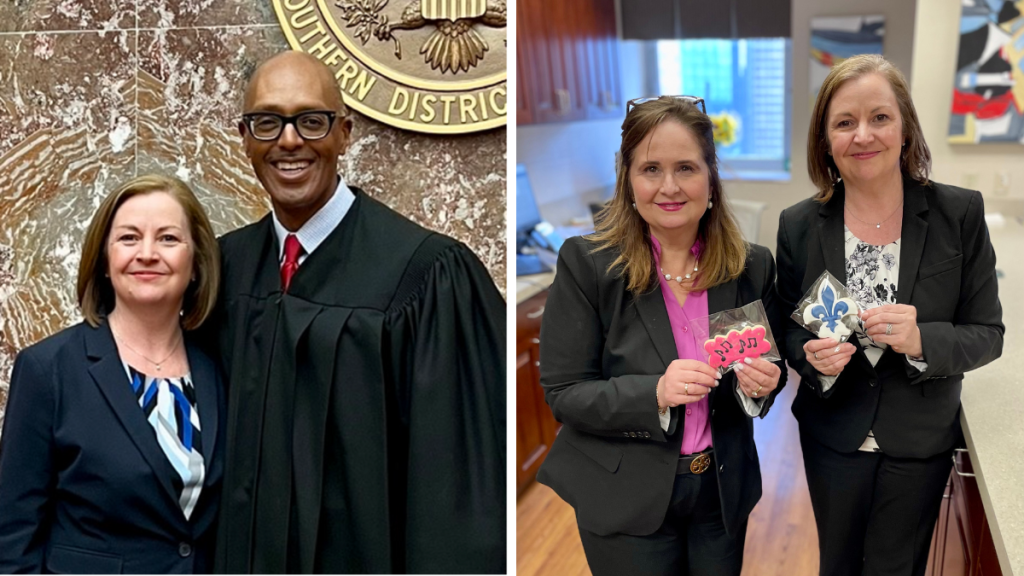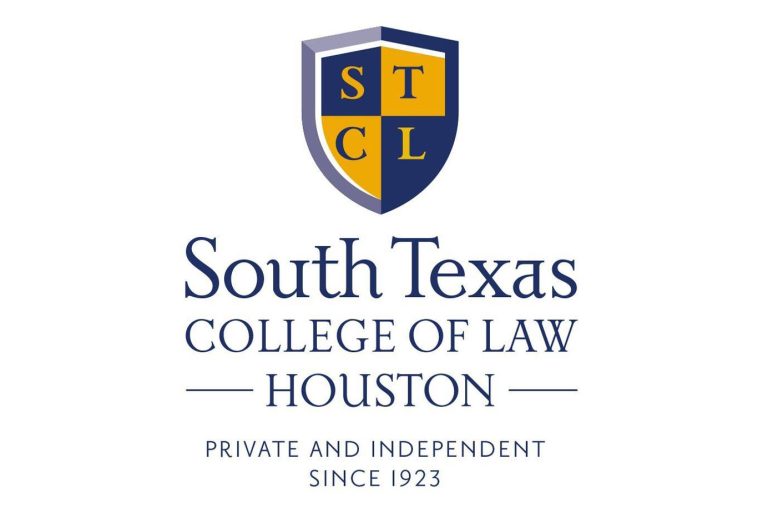Leaves of absence are among the most important means by which the teaching effectiveness of faculty members may be enhanced, their scholarly usefulness enlarged, and an institution’s academic program strengthened and developed.
—The Academic Senate for California Community Colleges, Education Policies Committee 2006-07, Sabbaticals: Benefitting Faculty, The Institution, and Students
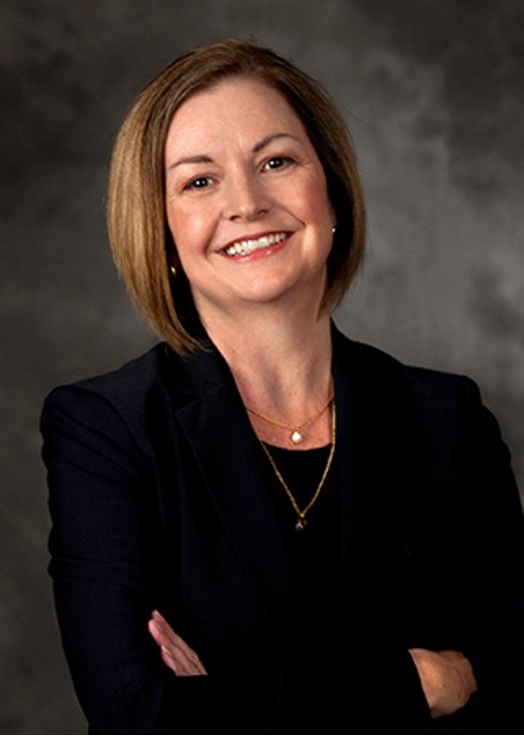 Katherine Vukadin, the Charles Weigel II Research Professor of Law who teaches legal writing at South Texas College of Law Houston, recently completed an innovative sabbatical — spending three months as an intern in three different courts to enhance her teaching skills and benefit her law students.
Katherine Vukadin, the Charles Weigel II Research Professor of Law who teaches legal writing at South Texas College of Law Houston, recently completed an innovative sabbatical — spending three months as an intern in three different courts to enhance her teaching skills and benefit her law students.
While academic sabbaticals have typically been opportunities for faculty to research and write, with the end goal of publishing an article or book, professors today may develop experiential sabbaticals that enhance and refresh their understanding of the way things are done now.
Vukadin researched sabbaticals when planning her own, and she found other law professors providing pro bono services or working with the district attorney’s office. She did not find evidence of anyone serving as an intern for a court.
“I wanted to do something different… something that would give me the opportunity to learn more about persuasive writing for judges,” Vukadin said. “I wanted a project that would bring fresh knowledge to my students and strengthen my teaching — and court is so interesting.” She received approval and active support for her innovative sabbatical from the administration at South Texas Law. “Dean Michael Barry and Associate Dean Ted Field loved the idea and helped pave the way for it to happen.”
Vukadin had three “first days of work” during her sabbatical. “It was exciting,” she said. Her goal was to understand the changes that had taken place since she was involved in writing for a judge as a practicing attorney. She wanted to share with her students what really happens in court and what judges expect from lawyers’ writing.
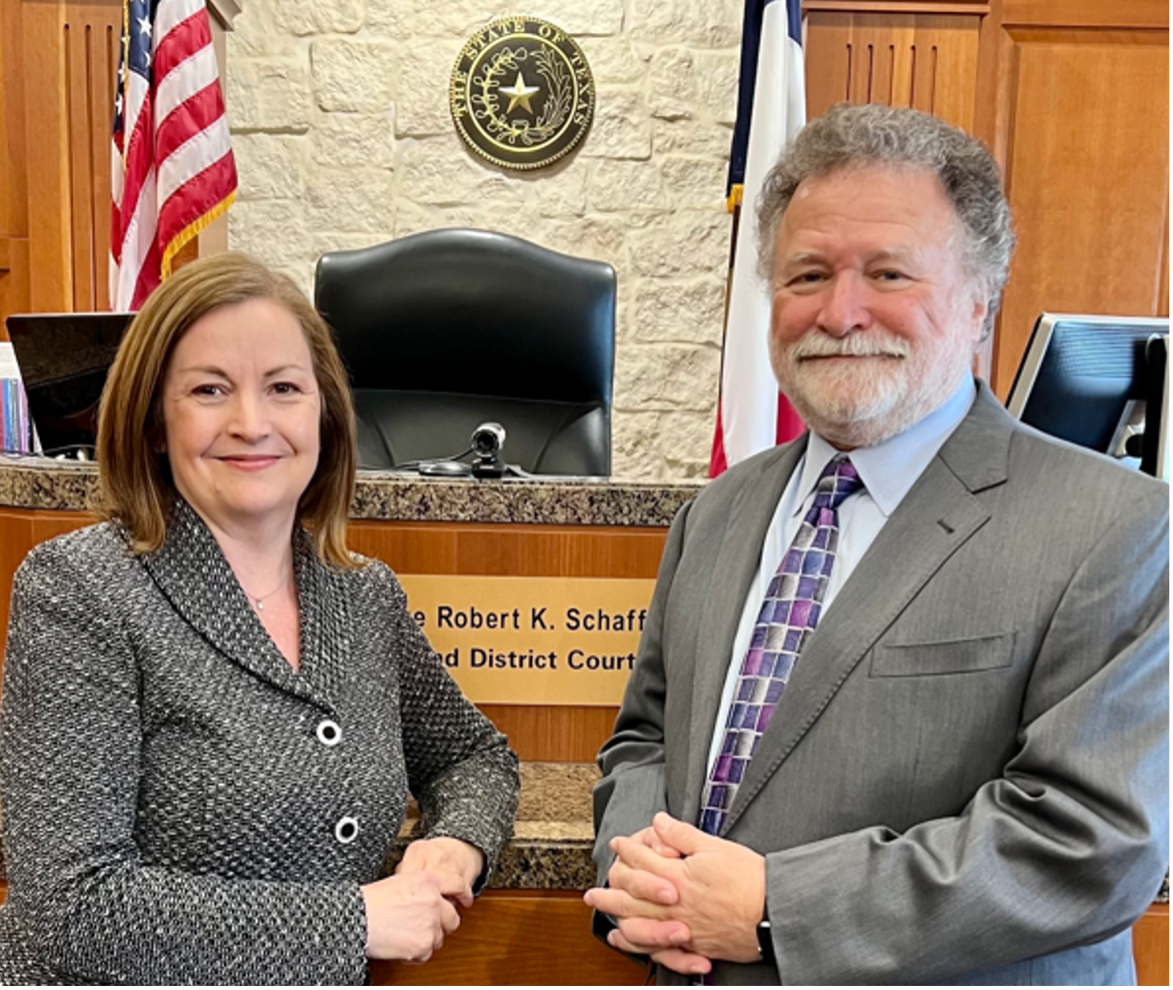 The judicial trio who welcomed Vukadin into their courts were Judge Robert K. Schaffer ’84, a South Texas Law graduate who presides over the 152nd Civil Judicial District Court in Harris County; Judge George C. Hanks, Jr. of the Federal District Court of the Southern District of Texas, Houston Division; and Judge Jennifer W. Elrod, a circuit judge on the U.S. Court of Appeals for the Fifth Circuit with chambers in Houston.
The judicial trio who welcomed Vukadin into their courts were Judge Robert K. Schaffer ’84, a South Texas Law graduate who presides over the 152nd Civil Judicial District Court in Harris County; Judge George C. Hanks, Jr. of the Federal District Court of the Southern District of Texas, Houston Division; and Judge Jennifer W. Elrod, a circuit judge on the U.S. Court of Appeals for the Fifth Circuit with chambers in Houston.
“My experience exceeded my high expectations,” she said. “I was not merely observing courtroom activities. I also was reading briefs and talking to the judges about particular points to emphasize with students. The judges were frank and helpful, and generous with their time. They were interested in helping train the next generation of lawyers. And I became friends with their clerks and staff.”
The results of Vukadin’s unique experience will ripple through the legal community and have a positive impact. Students will benefit, as she incorporates her findings into her teaching. She instructs first-year students for two consecutive semesters on one of the core elements of legal practice.
“Legal writing is not unlike a foreign language that must be learned,” Vukadin said. “It is vital; it is the skill that lawyers are judged on early in their careers.”
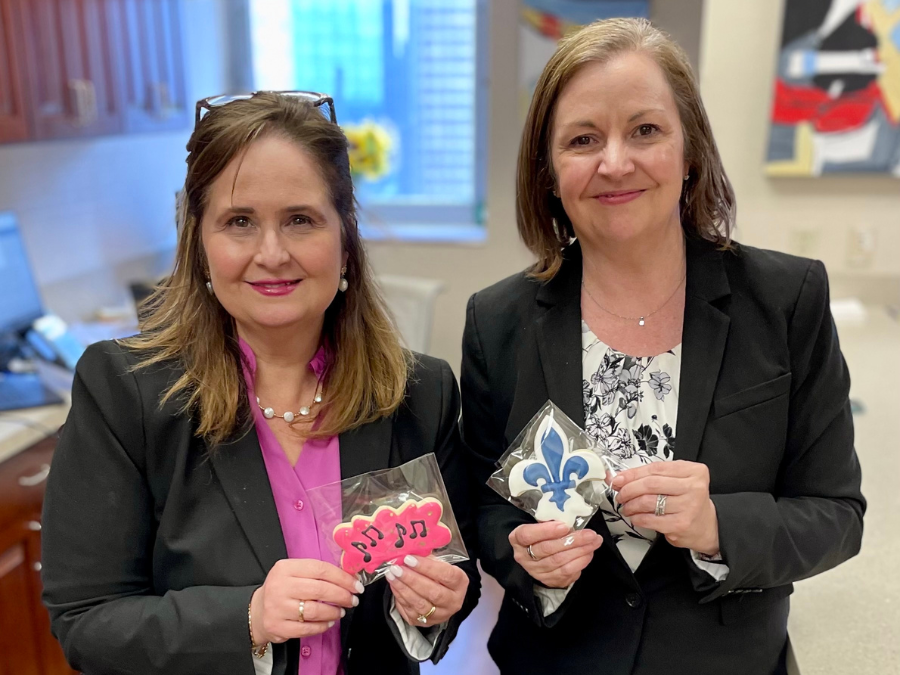 She also will be sharing what she learned with colleagues around the country, authoring articles, and presenting at conferences. Eventually, judges will benefit as current law students become young attorneys, better equipped to write for their audience — the courts.
She also will be sharing what she learned with colleagues around the country, authoring articles, and presenting at conferences. Eventually, judges will benefit as current law students become young attorneys, better equipped to write for their audience — the courts.
Vukadin said three things from her sabbatical stand out as especially important to pass along to others: know your audience, be prepared, and comport yourself well in the courtroom.
“Trying to fully understand the reader of your writing is critical,” she said. “You should know the context of the court, the circumstances the judge is operating under, and how to write to get your point across to the court. What can you learn about the judge? Does he or she have a clerk, no clerks, many clerks? How many cases are heard? Do they value deep explanations or quick, concise descriptions of the situation?”
Also, each court has its own written “local rules” to help it operate efficiently. Law students are taught to be prepared when presenting. “Going the extra mile, beyond points of law and case specifics, making sure you have read the court’s specific rules and abiding by them, will keep you from looking ill prepared.”
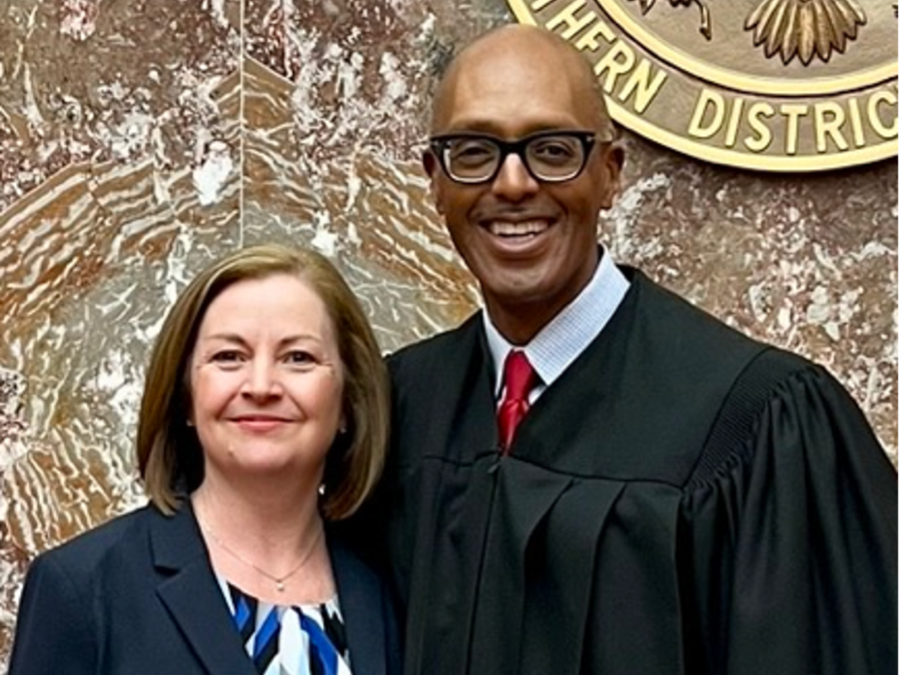 Lastly, courtroom comportment is incredibly important. “Lawyers who engage in professional, respectful, collegial civility to all present, including the opponent, are not only behaving ethically, but will put themselves in good stead with the court.”
Lastly, courtroom comportment is incredibly important. “Lawyers who engage in professional, respectful, collegial civility to all present, including the opponent, are not only behaving ethically, but will put themselves in good stead with the court.”
“I have come away from this project with an even deeper respect for the courts, the Constitution, and the judiciary,” Vukadin said. “And this information will definitely contribute to bringing STCL Houston students into the profession as practice ready. I love teaching, and I believe in what we do here at South Texas Law.”

